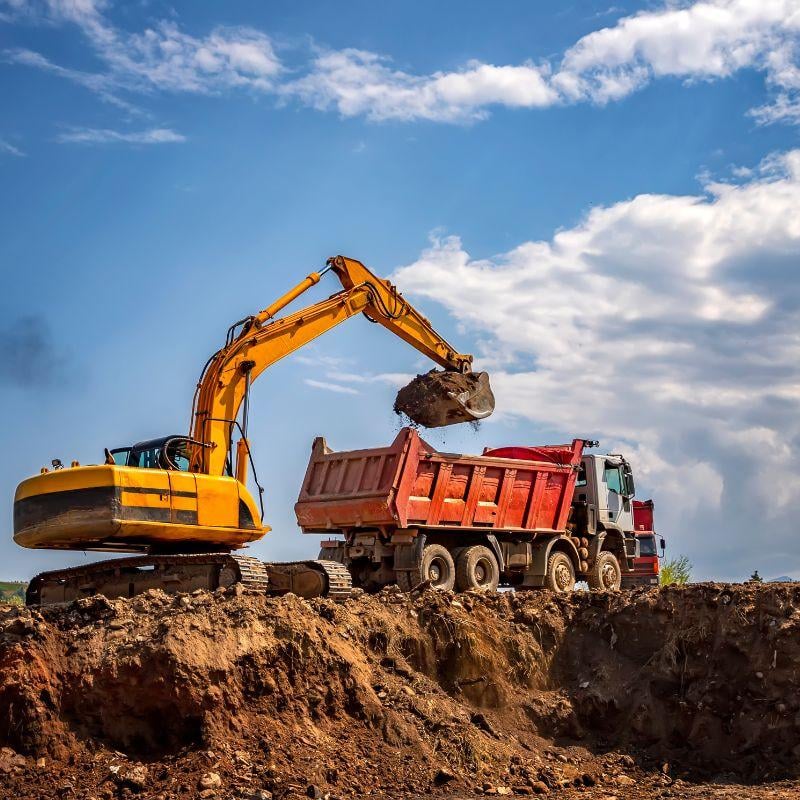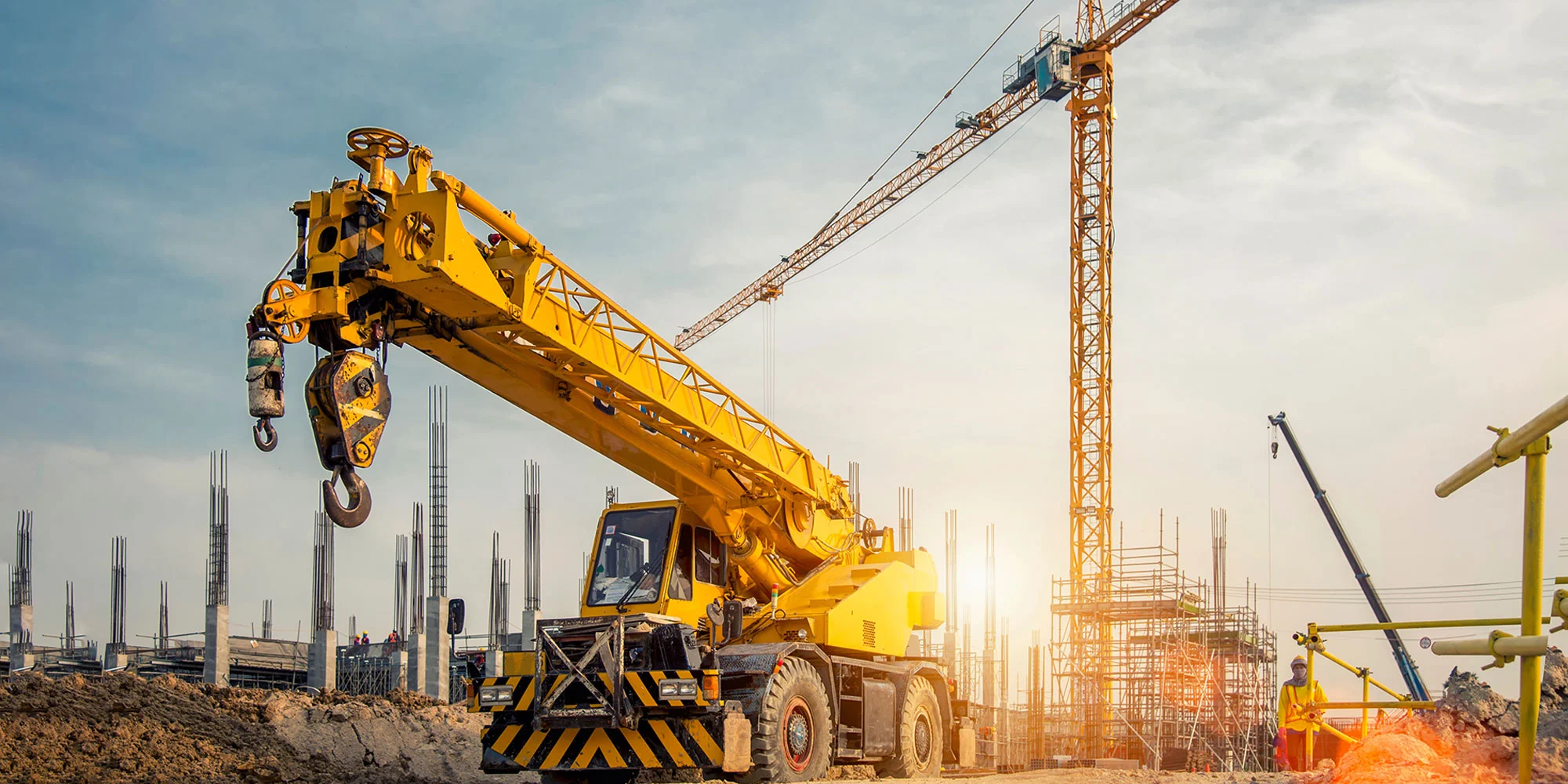Forklift Rental in Tuscaloosa AL: Versatile Lifting Solutions for Your Needs
Wiki Article
Discovering the Financial Conveniences of Leasing Construction Devices Contrasted to Owning It Long-Term
The choice in between leasing and owning building tools is essential for monetary monitoring in the industry. Renting deals prompt expense financial savings and functional adaptability, permitting firms to designate resources more efficiently. In contrast, ownership includes substantial long-lasting monetary commitments, consisting of upkeep and devaluation. As service providers evaluate these choices, the influence on money flow, project timelines, and modern technology access comes to be significantly substantial. Understanding these subtleties is vital, specifically when taking into consideration just how they straighten with certain task needs and monetary methods. What factors should be prioritized to guarantee optimum decision-making in this complicated landscape?
Price Comparison: Renting Vs. Possessing
When examining the monetary implications of having versus leasing building devices, a detailed expense contrast is necessary for making educated choices. The option between having and renting out can significantly affect a firm's profits, and comprehending the connected costs is essential.Leasing building tools typically entails reduced in advance costs, allowing companies to allot resources to other operational requirements. Rental agreements typically include flexible terms, allowing business to access advanced machinery without long-lasting commitments. This flexibility can be specifically beneficial for short-term tasks or varying work. Nevertheless, rental costs can gather in time, potentially going beyond the cost of ownership if tools is required for an extended duration.
On the other hand, owning construction equipment needs a substantial first investment, along with continuous prices such as funding, insurance coverage, and depreciation. While ownership can result in lasting cost savings, it additionally binds resources and may not offer the exact same degree of versatility as leasing. Furthermore, having equipment necessitates a dedication to its use, which may not constantly align with task demands.
Eventually, the decision to own or rent needs to be based upon a comprehensive evaluation of certain project requirements, monetary capacity, and long-lasting calculated goals.

Maintenance Expenditures and Responsibilities
The option between owning and renting building and construction devices not only includes financial considerations however additionally includes ongoing maintenance costs and duties. Owning tools needs a significant dedication to its maintenance, that includes routine examinations, repair work, and prospective upgrades. These obligations can quickly collect, leading to unforeseen costs that can stress a budget plan.In contrast, when renting equipment, maintenance is generally the duty of the rental firm. This arrangement allows specialists to avoid the financial concern linked with wear and tear, as well as the logistical difficulties of scheduling repair services. Rental agreements often include provisions for upkeep, meaning that service providers can concentrate on finishing projects as opposed to fretting about tools problem.
In addition, the diverse range of devices readily available for rental fee allows companies to pick the most current models with advanced technology, which can improve effectiveness and performance - scissor lift rental in Tuscaloosa Al. By selecting rentals, companies can prevent the lasting obligation of tools devaluation and the linked upkeep frustrations. Inevitably, examining maintenance expenses and duties is vital for making an informed choice regarding whether to lease or own construction tools, considerably impacting overall job expenses and operational performance

Devaluation Influence On Ownership

A significant variable to consider in the choice to possess building and construction equipment is the effect of devaluation on overall ownership expenses. Devaluation stands for the decrease in value of the devices over time, affected by elements such as usage, deterioration, and improvements in innovation. As equipment ages, its market worth diminishes, which can substantially influence the owner's financial placement when it comes time to trade the tools or market.
For building firms, this depreciation can equate to substantial losses if the equipment is not utilized to its fullest capacity or if it lapses. Owners should make up depreciation in their monetary projections, which can result in higher overall prices compared to renting. Additionally, the tax obligation implications of depreciation can be complicated; while it may supply some tax advantages, these are frequently countered by the fact of minimized resale worth.
Inevitably, the concern of devaluation stresses the relevance of understanding the lasting monetary commitment associated with having construction tools. Companies have to thoroughly review exactly how frequently they will make use of the equipment and the possible financial effect of depreciation to make an educated decision concerning possession versus renting out.
Financial Adaptability of Leasing
Leasing building and construction devices provides substantial economic flexibility, enabling firms to assign resources much more effectively. This versatility is particularly important in an industry defined by changing task needs and differing workloads. By opting to lease, organizations can avoid the significant resources investment required for acquiring equipment, protecting cash money flow for various other operational demands.Furthermore, leasing equipment makes it possible for business to tailor their equipment selections to certain task demands without the lasting commitment connected with ownership. This indicates that businesses can conveniently scale their tools supply up or down based upon anticipated and present project demands. Consequently, this versatility decreases the danger of over-investment in equipment that might become underutilized or outdated with time.
Another financial advantage of leasing is the potential for tax obligation benefits. Rental payments are commonly thought about business expenses, allowing for instant tax deductions, unlike devaluation on owned and operated devices, which is spread out over numerous years. scissor lift rental in Tuscaloosa Al. This prompt expense acknowledgment can further boost a business's money placement
Long-Term Project Factors To Consider
When examining the lasting needs of a building organization, the choice between having and renting out tools ends up being much more complex. For projects with prolonged timelines, find out here acquiring devices might appear advantageous due to the potential for reduced general expenses.In addition, technological advancements posture a significant consideration. The construction sector is progressing swiftly, with brand-new equipment offering enhanced efficiency and security features. Leasing allows companies to access the current technology without devoting to the high in advance expenses connected with buying. This versatility is especially beneficial for services that deal with varied projects requiring different kinds of equipment.
Additionally, economic stability plays a crucial function. Owning equipment commonly entails significant funding financial investment and depreciation issues, while renting out allows for even more predictable budgeting and capital. Eventually, the option between renting and owning must be straightened with the tactical purposes of the construction service, considering both current and expected task demands.
Conclusion
In final thought, leasing building and construction devices uses significant monetary advantages over lasting possession. Inevitably, the decision to rent instead than own aligns with the vibrant nature of building jobs, permitting for versatility and accessibility to the newest devices without the monetary ground heater for sale problems associated with possession.As equipment his response ages, its market value reduces, which can considerably influence the owner's financial setting when it comes time to trade the devices or market.
Leasing building and construction tools uses significant monetary adaptability, permitting companies to designate sources extra successfully.Additionally, renting out devices makes it possible for firms to tailor their devices choices to certain task requirements without the long-lasting commitment linked with ownership.In verdict, renting out construction tools provides significant monetary benefits over long-term possession. Eventually, the choice to rent instead than own aligns with the vibrant nature of building and construction projects, enabling for flexibility and accessibility to the most recent equipment without the financial burdens linked with ownership.
Report this wiki page